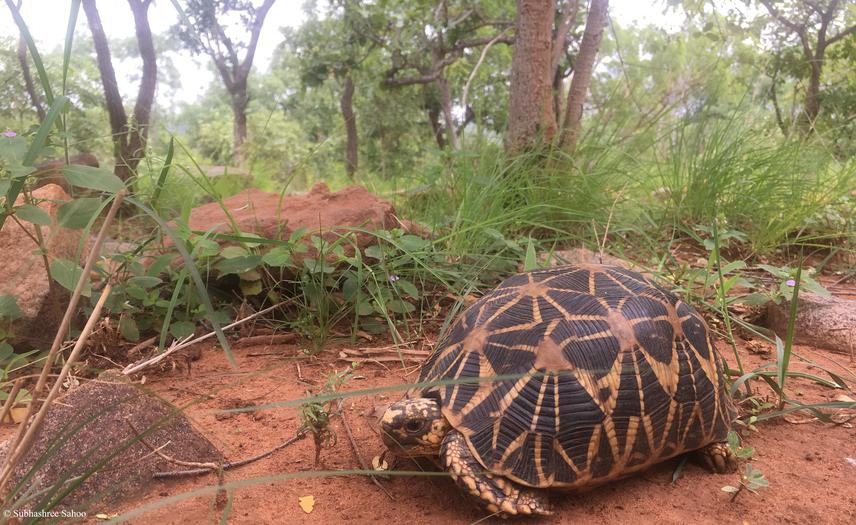Subhashree Sahoo
The Indian star tortoise (Geochelone elegans) is a testudine native to the Indian subcontinent, with a characteristic ornate-patterned carapace. Unfortunately, its unique appearance which aids its camouflage in natural arid habitat, has also led to its immense and unsustainable popularity as a pet. The Indian star tortoise is the most traded tortoise in international reptile trade network.

Once common across the Indian subcontinent, Indian star tortoises are currently limited to three geographical areas: North-western India and adjoining South-eastern Pakistan; Eastern and South India and throughout Sri Lanka. Despite being accorded the highest protection status in CITES (Appendix I), listed ‘Vulnerable’ in the IUCN Red List, and legally protected in all its range countries, Indian star tortoise remains the star target of international wildlife trade. Surge in both global and national seizures have made repatriation of confiscated tortoises a critical conservation and management concern. Additionally, genetically mismatched individuals may potentially disrupt vulnerable populations causing outbreeding depression. Hence, comprehensive genetic characterization among various Indian star tortoise populations is critical for intelligence-based management as well as responsible repatriation of confiscated seizures.
The project aims to generate a comprehensive molecular database of the highly traded Indian star tortoise from its native range in India. This will elucidate the population genetic structure of wild populations of Indian star tortoise with novel data from previously unsampled geographic locations.
The database will identify unique population signatures, based on which, most likely area of provenance of zoo and confiscated ISTs will be identified. Simultaneously, we will conduct outreach and training programmes. This will enhance practical knowledge amongst enforcement officials and frontline forest staff on handling confiscated tortoises and their monitoring in natural settings to appropriately manage confiscated individuals.
The project will thus create foundational resource for molecular tracking of zoo and confiscated tortoises, assisting scientific rehabilitation and management.